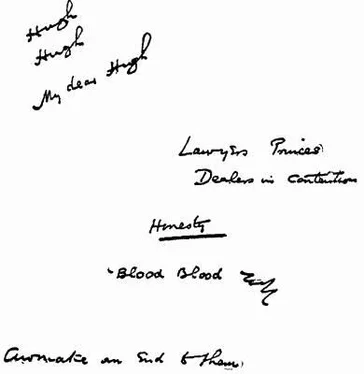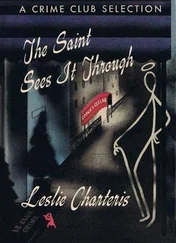Herbert Wells - Mr. Britling Sees It Through
Здесь есть возможность читать онлайн «Herbert Wells - Mr. Britling Sees It Through» весь текст электронной книги совершенно бесплатно (целиком полную версию без сокращений). В некоторых случаях можно слушать аудио, скачать через торрент в формате fb2 и присутствует краткое содержание. Жанр: Классическая проза, на английском языке. Описание произведения, (предисловие) а так же отзывы посетителей доступны на портале библиотеки ЛибКат.
- Название:Mr. Britling Sees It Through
- Автор:
- Жанр:
- Год:неизвестен
- ISBN:нет данных
- Рейтинг книги:4 / 5. Голосов: 1
-
Избранное:Добавить в избранное
- Отзывы:
-
Ваша оценка:
- 80
- 1
- 2
- 3
- 4
- 5
Mr. Britling Sees It Through: краткое содержание, описание и аннотация
Предлагаем к чтению аннотацию, описание, краткое содержание или предисловие (зависит от того, что написал сам автор книги «Mr. Britling Sees It Through»). Если вы не нашли необходимую информацию о книге — напишите в комментариях, мы постараемся отыскать её.
Mr. Britling Sees It Through — читать онлайн бесплатно полную книгу (весь текст) целиком
Ниже представлен текст книги, разбитый по страницам. Система сохранения места последней прочитанной страницы, позволяет с удобством читать онлайн бесплатно книгу «Mr. Britling Sees It Through», без необходимости каждый раз заново искать на чём Вы остановились. Поставьте закладку, и сможете в любой момент перейти на страницу, на которой закончили чтение.
Интервал:
Закладка:
§ 15
Cissie did not come up to the Dower House that afternoon, and so Mr. Direck, after some vague and transparent excuses, made his way to the cottage.
Here his report become even more impressive. Teddy sat on the writing desk beside the typewriter and swung his legs slowly. Letty brooded in the armchair. Cissie presided over certain limited crawling operations of the young heir.
"They could have the equal of the whole British Army killed three times over and scarcely know it had happened. They're all in it. It's a whole country in arms."
Teddy nodded thoughtfully.
"There's our fleet," said Letty.
"Well, that won't save Paris, will it?"
Mr. Direck didn't, he declared, want to make disagreeable talk, but this was a thing people in England had to face. He felt like one of them himself—"naturally." He'd sort of hurried home to them—it was just like hurrying home—to tell them of the tremendous thing that was going to hit them. He felt like a man in front of a flood, a great grey flood. He couldn't hide what he had been thinking. "Where's our army?" asked Letty suddenly.
"Lost somewhere in France," said Teddy. "Like a needle in a bottle of hay."
"What I keep on worrying at is this," Mr. Direck resumed. "Suppose they did come, suppose somehow they scrambled over, sixty or seventy thousand men perhaps."
"Every man would turn out and take a shot at them," said Letty.
"But there's no rifles!"
"There's shot guns."
"That's exactly what I'm afraid of," said Mr. Direck. "They'd massacre....
"You may be the bravest people on earth," said Mr. Direck, "but if you haven't got arms and the other chaps have—you're just as if you were sheep."
He became gloomily pensive.
He roused himself to describe his experiences at some length, and the extraordinary disturbance of his mind. He related more particularly his attempts to see the sights of Cologne during the stir of mobilisation. After a time his narrative flow lost force, and there was a general feeling that he ought to be left alone with Cissie. Teddy had a letter that must be posted; Letty took the infant to crawl on the mossy stones under the pear tree. Mr. Direck leant against the window-sill and became silent for some moments after the door had closed on Letty.
"As for you, Cissie," he began at last, "I'm anxious. I'm real anxious. I wish you'd let me throw the mantle of Old Glory over you."
He looked at her earnestly.
"Old Glory?" asked Cissie.
"Well—the Stars and Stripes. I want you to be able to claim American citizenship—in certain eventualities. It wouldn't be so very difficult. All the world over, Cissie, Americans are respected.... Nobody dares touch an American citizen. We are—an inviolate people."
He paused. "But how?" asked Cissie.
"It would be perfectly easy—perfectly."
"How?"
"Just marry an American citizen," said Mr. Direck, with his face beaming with ingenuous self-approval. "Then you'd be safe, and I'd not have to worry."
"Because we're in for a stiff war!" cried Cissie, and Direck perceived he had blundered.
"Because we may be invaded!" she said, and Mr. Direck's sense of error deepened.
"I vow—" she began.
"No!" cried Mr. Direck, and held out a hand.
There was a moment of crisis.
"Never will I desert my country—while she is at war," said Cissie, reducing her first fierce intention, and adding as though she regretted her concession, "Anyhow."
"Then it's up to me to end the war, Cissie," said Mr. Direck, trying to get her back to a less spirited attitude.
But Cissie wasn't to be got back so easily. The war was already beckoning to them in the cottage, and drawing them down from the auditorium into the arena.
"This is the rightest war in history," she said. "If I was an American I should be sorry to be one now and to have to stand out of it. I wish I was a man now so that I could do something for all the decency and civilisation the Germans have outraged. I can't understand how any man can be content to keep out of this, and watch Belgium being destroyed. It is like looking on at a murder. It is like watching a dog killing a kitten...."
Mr. Direck's expression was that of a man who is suddenly shown strange lights upon the world.
§ 16
Mr. Britling found Mr. Direck's talk very indigestible.
He was parting very reluctantly from his dream of a disastrous collapse of German imperialism, of a tremendous, decisive demonstration of the inherent unsoundness of militarist monarchy, to be followed by a world conference of chastened but hopeful nations, and—the Millennium. He tried now to think that Mr. Direck had observed badly and misconceived what he saw. An American, unused to any sort of military occurrences, might easily mistake tens of thousands for millions, and the excitement of a few commercial travellers for the enthusiasm of a united people. But the newspapers now, with a kindred reluctance, were beginning to qualify, bit by bit, their first representation of the German attack through Belgium as a vast and already partly thwarted parade of incompetence. The Germans, he gathered, were being continually beaten in Belgium; but just as continually they advanced. Each fresh newspaper name he looked up on the map marked an oncoming tide. Alost—Charleroi. Farther east the French were retreating from the Saales Pass. Surely the British, who had now been in France for a fortnight, would presently be manifest, stemming the onrush; somewhere perhaps in Brabant or East Flanders. It gave Mr. Britling an unpleasant night to hear at Claverings that the French were very ill-equipped; had no good modern guns either at Lille or Maubeuge, were short of boots and equipment generally, and rather depressed already at the trend of things. Mr. Britling dismissed this as pessimistic talk, and built his hopes on the still invisible British army, hovering somewhere—
He would sit over the map of Belgium, choosing where he would prefer to have the British hover....
Namur fell. The place names continued to shift southward and westward. The British army or a part of it came to light abruptly at Mons. It had been fighting for thirty-eight hours and defeating enormously superior forces of the enemy. That was reassuring until a day or so later "the Cambray—Le Cateau line" made Mr. Britling realise that the victorious British had recoiled five and twenty miles....
And then came the Sunday of The Times telegram, which spoke of a "retreating and a broken army." Mr. Britling did not see this, but Mr. Manning brought over the report of it in a state of profound consternation. Things, he said, seemed to be about as bad as they could be. The English were retreating towards the coast and in much disorder. They were "in the air" and already separated from the Trench. They had narrowly escaped "a Sedan" under the fortifications of Maubeuge.... Mr. Britling was stunned. He went to his study and stared helplessly at maps. It was as if David had flung his pebble—and missed!
But in the afternoon Mr. Manning telephoned to comfort his friend. A reassuring despatch from General French had been published and—all was well—practically—and the British had been splendid. They had been fighting continuously for several days round and about Mons; they had been attacked at odds of six to one, and they had repulsed and inflicted enormous losses on the enemy. They had established an incontestable personal superiority over the Germans. The Germans had been mown down in heaps; the British had charged through their cavalry like charging through paper. So at last and very gloriously for the British, British and German had met in battle. After the hard fighting of the 26th about Landrecies, the British had been comparatively unmolested, reinforcements covering double the losses had joined them and the German advance was definitely checked ... Mr. Britling's mind swung back to elation. He took down the entire despatch from Mr. Manning's dictation, and ran out with it into the garden where Mrs. Britling, with an unwonted expression of anxiety, was presiding over the teas of the usual casual Sunday gathering.... The despatch was read aloud twice over. After that there was hockey and high spirits, and then Mr. Britling went up to his study to answer a letter from Mrs. Harrowdean, the first letter that had come from her since their breach at the outbreak of the war, and which he was now in a better mood to answer than he had been hitherto.
Читать дальшеИнтервал:
Закладка:
Похожие книги на «Mr. Britling Sees It Through»
Представляем Вашему вниманию похожие книги на «Mr. Britling Sees It Through» списком для выбора. Мы отобрали схожую по названию и смыслу литературу в надежде предоставить читателям больше вариантов отыскать новые, интересные, ещё непрочитанные произведения.
Обсуждение, отзывы о книге «Mr. Britling Sees It Through» и просто собственные мнения читателей. Оставьте ваши комментарии, напишите, что Вы думаете о произведении, его смысле или главных героях. Укажите что конкретно понравилось, а что нет, и почему Вы так считаете.






